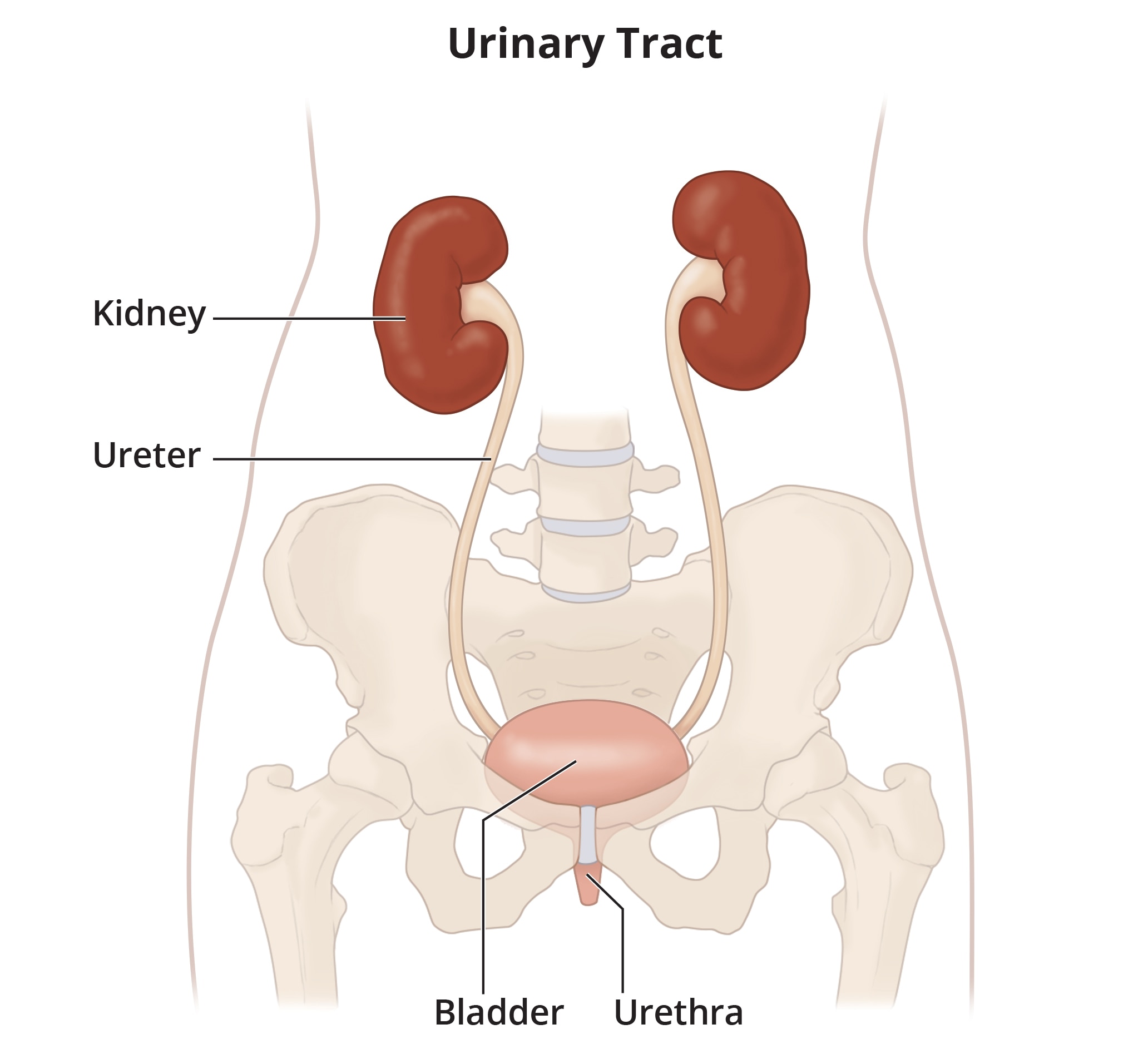Definition & Facts of Interstitial Cystitis
In this section:
- What is IC?
- How common is IC?
- Who is more likely to have IC?
- What other health problems do people with IC have?
- What are the complications of IC?
What is IC?
Interstitial cystitis (IC) is a chronic, or long-lasting, condition in which there is pain in the bladder. This pain usually gets worse as your bladder fills and gets better after you urinate. You may also feel pain in the groin and pelvic floor muscles. Symptoms of IC may be different among people. For example, some people feel mild discomfort, pressure, or tenderness in the pelvic area. Other people may have intense bladder pain or struggle with urinary urgency or urinary frequency.

Severe IC symptoms can affect your quality of life. You may feel like you can’t exercise or leave your home because you must use the bathroom too often. If sex is painful, you may worry about your relationship.
Working with health care professionals, such as a urologist or urogynecologist and a pain specialist, may help improve your IC symptoms.
Does IC have another name?
IC is also called bladder pain syndrome.
How common is IC?
IC is common. Between 4 and 12 million people in the United States may have IC.1 Experts don’t know the exact number because IC can be mistaken for other conditions.
Who is more likely to have IC?
IC is more common in women than men. IC can occur at any age, but it is more common in adults.
Some research suggests that women who experienced trauma as children may be more likely to develop IC.2
What other health problems do people with IC have?
People with IC are more likely to have
- other chronic pain conditions, such as fibromyalgia, vulvodynia, migraine, and chronic fatigue syndrome
- gastrointestinal or gastroesophageal disorders, such as irritable bowel syndrome and gastroesophageal reflux disease
- allergies
- autoimmune diseases
- mental health issues, such as depression and anxiety
Some studies show that women with IC experience these conditions more often than men with IC.3
What are the complications of IC?
Reduced physical and social activity
Physical activity is important for overall health. The symptoms of IC—such as urgency, frequency, and pain—may interfere with physical and social activity. Not getting enough of these activities may affect your quality of life.
Talk with your health care professional if your IC symptoms make it hard for you to be active.
Sleep loss
People with IC may struggle with sleep loss. You may not get enough sleep because of chronic pain. You may need to urinate several times during the night, which keeps you up. When you don’t get enough sleep, this can lead to other physical and mental health problems.
Talk with your health care professional if your IC symptoms make it hard for you to get enough sleep.
Intimacy problems
People with chronic pelvic pain—or vulvodynia—often have pain during sex, which can affect relationships and self-image. Sometimes sex can increase bladder pain attacks, also called symptom flares.
Problems with sex may cause people to avoid intimacy with their partners. These problems could lead to depression and guilt.
Pain during medical exams
Medical tests such as pelvic exams and Pap smear tests often are painful if you have IC. These tests may be more painful if you have spasms in your pelvic floor muscles. Don’t avoid these tests. Talk with your health care professional about how to make pelvic exams and Pap smear tests more comfortable and how often you should have them.
 Talk with your health care professional if your IC symptoms make it difficult for you to be active.
Talk with your health care professional if your IC symptoms make it difficult for you to be active.References
This content is provided as a service of the National Institute of Diabetes and Digestive and Kidney Diseases
(NIDDK), part of the National Institutes of Health. NIDDK translates and disseminates research findings to increase knowledge and understanding about health and disease among patients, health professionals, and the public. Content produced by NIDDK is carefully reviewed by NIDDK scientists and other experts.

